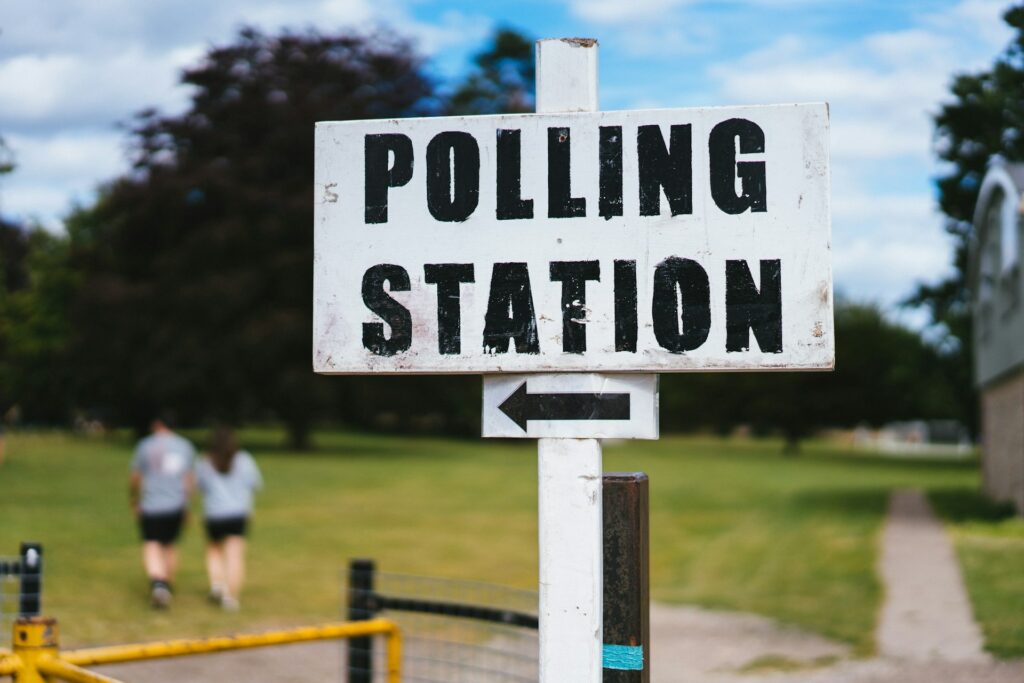
(Scypre.com) –
In a final episode before Election Day, Vice President Kamala Harris made a surprise appearance on Saturday Night Live (SNL), joining her comedic impersonator Maya Rudolph in a skit that drew widespread attention and sparked a backlash from some political figures and officials. The episode, which aired Saturday night, featured Harris as a humorous “mirror image” of herself opposite Rudolph, a highlight in SNL’s tradition of political satire.
Rudolph, who has impersonated Harris throughout the 2020 campaign season, opened the skit by musing, “I wish I could talk to someone who’s been in my shoes. You know, a Black, South Asian woman running for president. Preferably from the Bay Area.” To the audience’s delight, Harris then appeared sitting across the table, responding, “You and me both, sister,” to applause from the crowd.
The dialogue poked fun at both Vice President Harris’s experiences and President Donald Trump’s recent public appearances. At one point, Harris encouraged her lookalike to “open doors,” a reference to Trump’s widely-shared difficulty in handling the door of a garbage truck he used as a backdrop earlier in the week. This visual of Trump and the truck was in response to Joe Biden’s remarks describing some of Trump’s supporters as “garbage,” which became a focal point for both campaigns.
The skit humorously captured Harris’s trademark laugh, with Rudolph’s exaggerated version leading Harris to ask, “I don’t really laugh like that, do I?” to which Rudolph replied, “A little bit.” Their back-and-forth included a playful string of rhymes, with Rudolph calling her “Kamala, take my palm-ala,” followed by both characters riffing on rhymes to “end the drama-la” and “watch a rom-com-ala,” showcasing SNL’s style of lighthearted, rhythmic humor. Rudolph concluded, “I’m going to vote for us,” with Harris quipping, “Great. Any chance you’re registered in Pennsylvania?” Rudolph’s reply, “Nope, I am not,” wrapped up the segment, which ended in the classic “Live from New York, it’s Saturday night!”
However, the Trump campaign was quick to condemn Harris’s appearance, accusing her of lacking “substance” and characterizing the performance as a “warped fantasy.” Trump campaign spokesperson Steven Cheung told Fox News Digital, “Kamala Harris has nothing substantive to offer the American people, so that’s why she’s living out her warped fantasy cosplaying with her elitist friends on Saturday Night Leftists.” He added, “For the last four years, Kamala’s destructive policies have led to untold misery and hurt for all Americans. She broke it, and President Trump will fix it.”
Brendan Carr, a commissioner with the Federal Communications Commission (FCC) and a Republican appointee, criticized the broadcast as a violation of the FCC’s Equal Time rule, which requires broadcasters to give equivalent air time to competing candidates. He tweeted, “The purpose of the rule is to avoid exactly this type of biased and partisan conduct – a licensed broadcaster using the public airwaves to exert its influence for one candidate on the eve of an election.”
In response to the backlash, SNL producer Lorne Michaels clarified that neither Trump nor Biden had been invited for this particular episode. Executive producer Michaels reportedly said last month that there were no plans to have either candidate make an appearance before Election Day, a sentiment that raised questions about SNL’s longstanding history of featuring political figures on both sides of the aisle.
Saturday’s episode continued the tradition of high-profile appearances, with Democratic Senator Tim Kaine also joining the show for a sketch. Kaine, who was Hillary Clinton’s running mate in 2016, played himself in a game-show skit in which contestants struggled to remember his name—a subtle jab at Kaine’s relatively low profile since his vice-presidential bid.
SNL has a storied history of featuring political figures, including appearances by Trump, who hosted the show both in 2004 and as a presidential candidate in 2015. The show’s depiction of candidates and politicians from both major parties has contributed to its reputation as a pop culture touchstone in American politics, though it has occasionally drawn criticism for perceived bias, especially in recent years.
From Barack Obama to Hillary Clinton, Sarah Palin to John McCain, many candidates have appeared on SNL to showcase a humorous side of themselves to voters. Yet, as the recent episode underscores, the lines between entertainment and politics can sometimes be contentious, especially in the charged climate of a major election.